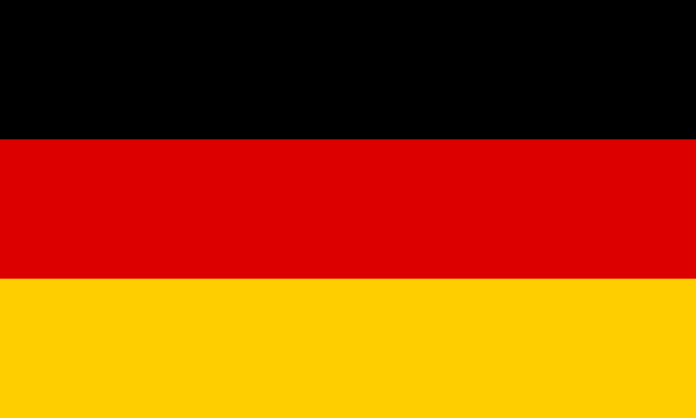Germany’s recent federal elections have delivered a seismic shift in the country’s political landscape, with the conservative Christian Democrats (CDU) and their Bavarian sister party, the Christian Social Union (CSU), emerging as the largest bloc. However, the far-right Alternative for Germany (AfD) achieved its best-ever result, while Chancellor Olaf Scholz’s Social Democratic Party (SPD) suffered a historic collapse. Amid these expected yet troubling developments, the resurgence of the far-left has emerged as a surprising and hopeful counterbalance.
The Expected: Far-Right Gains and Conservative Dominance
The AfD’s record-breaking performance, securing 20.8% of the vote, marks a significant milestone for the far-right party, which has steadily gained traction since its formation in 2013. This result reflects growing discontent among voters, particularly on issues like immigration and energy policy, which AfD leaders have capitalised on. Alice Weidel, the party’s co-leader, declared that the AfD has “arrived as a party of the people,” positioning itself as a central force in German politics. Despite this, mainstream parties, including the CDU/CSU, have reaffirmed their commitment to the so-called “firewall” pact, ruling out any cooperation with the far-right.
Friedrich Merz, the CDU/CSU leader and likely next chancellor, acknowledged the challenges ahead, emphasising the need to form a stable government quickly. “The world out there is not waiting for us,” he said, highlighting the urgency of addressing both domestic and international crises, including the war in Ukraine and Europe’s strained relationship with the United States. Merz’s criticism of the Trump administration’s indifference to Europe underscores the broader geopolitical tensions shaping Germany’s political priorities.
The Unexpected: A Resurgent Far Left
While the rise of the far-right was widely anticipated, the strong performance of the far-left has been a welcome surprise. The Left Party, which had been teetering on the edge of political irrelevance, surged to 8.8% of the vote, comfortably surpassing the 5% threshold needed to secure seats in the Bundestag. This resurgence signals a renewed appetite for progressive policies among a significant portion of the electorate.
Heidi Reichinnek, a Left Party candidate, expressed jubilation at the result, telling German broadcaster ARD, “I am so incredibly happy about our result.” The party’s comeback reflects a growing demand for alternatives to the centrist policies that have dominated German politics in recent years. Meanwhile, the newly founded Sahra Wagenknecht Alliance (BSW), a left-wing splinter group, narrowly missed entering parliament with 4.9% of the vote. Despite falling short, the BSW’s strong showing in its first election suggests potential for future growth.
A Weakened Center and a Fragmented Political Landscape
The election results have exposed the fragility of Germany’s political centre. The SPD’s collapse to 16.4%, its worst post-war result, and the Free Democratic Party’s (FDP) failure to meet the 5% threshold highlight the declining appeal of traditional centrist parties. Chancellor Scholz described the outcome as “very bitter” for the SPD, while former Finance Minister Christian Lindner announced his resignation from active politics following the FDP’s defeat.
Robert Habeck, the Greens’ chancellor candidate, acknowledged the mixed results for his party, which saw smaller losses compared to its coalition partners. He warned that the weakening of the political centre should serve as a wake-up call for all parties to reflect on their roles in the current political climate.
A Silver Lining in the Far Left’s Rise
The resurgence of the far-left offers a glimmer of hope for those concerned about the far-right’s growing influence. While the AfD’s gains are alarming, the Left Party’s strong performance demonstrates that progressive voices still resonate with a significant portion of the electorate. This balance could play a crucial role in shaping Germany’s political future, particularly as coalition negotiations unfold.
As Friedrich Merz works to form a government, the presence of a strengthened far-left bloc could serve as a counterweight to the far-right, ensuring that progressive policies remain part of the national conversation. In a time of political uncertainty and fragmentation, the rise of the far-left is a reminder that Germany’s political landscape is not monolithic, and that hope for a more inclusive and equitable future remains alive.
In summary, Germany’s recent election has underscored the deep divisions within its electorate, with the far-right making significant gains and the political centre crumbling. However, the unexpected resurgence of the far-left offers a silver lining, providing a counterbalance to the AfD’s rise and reaffirming the importance of progressive values in German politics. As the country navigates this new political reality, the challenge will be to build a government that addresses the concerns of all citizens while upholding democratic principles and social cohesion.







